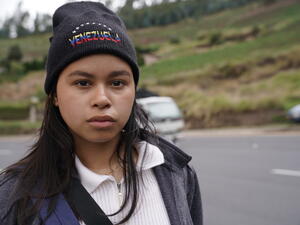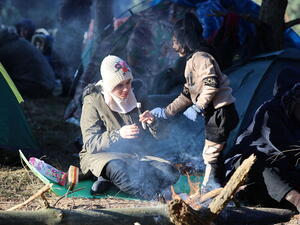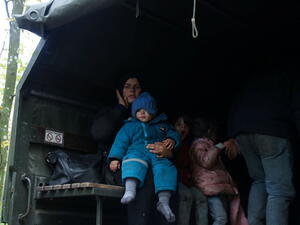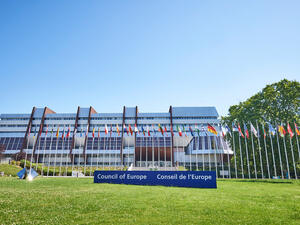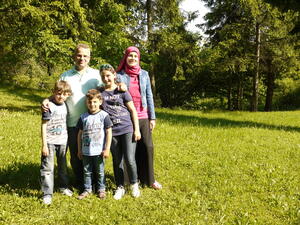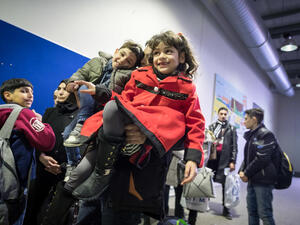UNHCR pleased with the outcome of the Tampere summit
UNHCR pleased with the outcome of the Tampere summit
UNHCR has every reason to be pleased with the summit's conclusions. Political leaders have gone as far as we could reasonably expect in setting a positive political tone. The devil will of course, as always, be in the subsequent elaboration and implementation.
It is refreshing to see the asylum issue dealt with up front rather than, as has usually been the case, as a final afterthought. Moreover, in the discussion on asylum and migration, protection considerations preceded considerations of border control, which is again a welcome and unusual development.
In putting a strong emphasis on the right to seek asylum and the full and inclusive application of the Geneva Convention, the Council has certainly met UNHCR's concern that a positive political tone be set. Also to be welcomed is the intention to move beyond minimum levels of harmonisation and to aim for a common system both in terms of asylum procedures and, eventually, a uniform refugee status.
Key issues
Paragraph 3 states that freedom cannot be restricted to EU citizens but must extend to those who justifiably seek access to European territory. This requires common policies on asylum and immigration which "offer guarantees to those who seek protection in or access to the European Union".
In paragraph 4, full commitment to the Geneva Convention is reaffirmed and the need to be able to respond to humanitarian needs on the basis of solidarity is highlighted.
Paragraph 10 makes, up-front, as UNHCR had requested, a distinction between asylum and migration and calls for the development of a common European policy in these areas.
Paragraphs 11 and 12 highlight the need for a comprehensive approach to migration which extends to political, human rights and development issues in countries of origin and transit. The work of the EU High Level Working Group is welcomed and its mandate extended.
Paragraph 13 reaffirms the importance the EU and member States attach to "the absolute respect of the right to seek asylum". The Council has agreed to work "towards establishing a Common European Asylum System, based on the full and inclusive application of the Geneva Convention, thus ensuring that nobody is sent back to persecution..."
Paragraph 14 lists a number of short term goals, which basically recapitulate Article 63 of the Amsterdam Treaty and the Vienna Action Plan. These include common standards for a fair and efficient asylum procedure, common minimum conditions of reception of asylum seekers, and the approximation of rules on the recognition and content of refugee status; these to be complemented with subsidiary forms of protection. The importance of consultation with UNHCR and other international organisations is stressed.
Paragraph 15 foresees that, in the longer term,"Community rules should lead to "a common procedure and a uniform status for those who are granted asylum valid throughout the Union".
The Commission is asked to prepare within one year a communication on this matter.
Paragraph 18 foresees a "more vigorous integration policy" for third country nationals, while paragraph 19 invites the Commission to come forward with proposals to fight racism and xenophobia.
Paragraphs 22 and 23 stress the need for "more efficient management of migration flows and prevention of all forms of human trafficking. Paragraph 24 calls for closer co-operation between Member States' border control services, while paragraph 27 invites the Council to conclude re-admission agreements.


